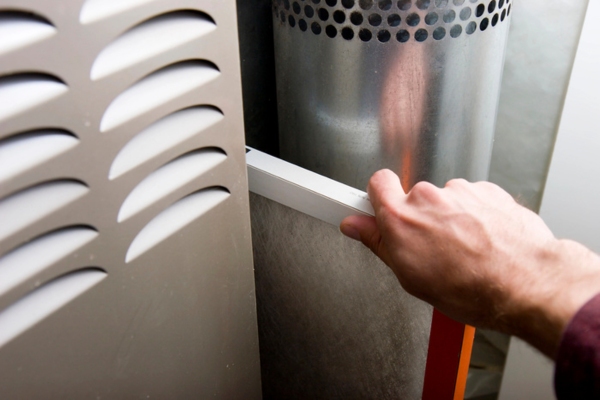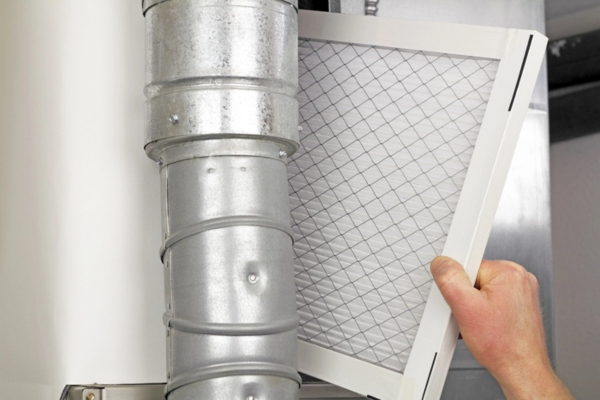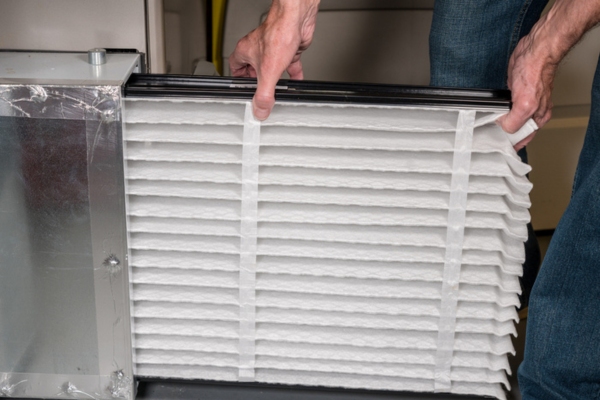Furnaces And Filters: Can One Work Without The Other?

Furnaces ensure indoor comfort, especially in colder regions, by distributing warm air throughout your home. A vital component of these systems, the furnace filter, captures dust and allergens to maintain clean air and efficient operation. In this article by Miller Oil Company, we’ll explore the necessity of these filters by discussing can furnaces work without filters and how they operate with and without them.
Exploring the Role of Furnace Filters
Contents
- 1 Exploring the Role of Furnace Filters
- 2 Operating Furnaces Without Filters
- 3 The Debate Over Efficiency and Necessity
- 4 Guidelines & Recommendations for Furnace Filters
- 5 Innovations & Future Directions in Furnace Filters
- 6 Frequently Asked Questions About Furnace Filters
- 6.1 How Often Should Furnace Filters Be Replaced?
- 6.2 How Do Various Furnace Filters Impact Air Quality and Furnace Efficiency?
- 6.3 Can the Wrong Type of Filter Impact My Furnace’s Performance?
- 6.4 What Are MERV Ratings, and How Do They Affect Filter Selection?
- 6.5 Are There Advanced Technologies Available for Furnace Filters?
- 7 Conclusion
- 8 Contact Miller Oil Company For All Your HVAC Needs

Furnace filters are essential components of heating systems. They are crafted from fibrous materials to capture airborne contaminants like dust, pollen, and pet dander. The pleated design of these filters enhances their surface area, making them highly effective at trapping particles. As air flows through the furnace, these filters act as a protective barrier, ensuring that only purified air is circulated into your home.
Breathe easier with clean, efficient heating—book your HVAC check-up with Miller Oil Company now! Call us today!
Varieties of Furnace Filters
Furnace filters come in different types, each with unique features:
- Disposable Fiberglass HVAC Filter: These basic and cost-effective filters are constructed from spun fiberglass and can catch larger particles.
- Pleated Air Filter: Crafted from superior materials, these filters enhance filtration by capturing finer particles.
- Electrostatic Home Air Filter: These filters use static electricity to attract and trap particles. They are available in disposable and reusable varieties.
- HEPA (High-Efficiency Particulate Air): Recognized for their exceptional efficiency, HEPA filters excel at capturing microscopic particles, such as bacteria and viruses.
The Critical Role of Furnace Filters
Furnace filters are crucial for maintaining indoor air quality and safeguarding the furnace itself. They capture detrimental particles, facilitating clean air circulation and preventing dust and debris from damaging furnace components. But can furnaces work without filters? Understanding this question is key, as using a filter extends the furnace’s lifespan and boosts its efficiency, resulting in lower maintenance expenses and enhanced system dependability.
Operating Furnaces Without Filters
Although furnaces can operate without filters, they are strongly discouraged because of significant drawbacks. Operating a furnace without a filter allows dust and allergens to circulate unchecked, compromising indoor air quality and comfort. Over time, this can cause substantial damage to the furnace’s internal components, diminishing its efficiency, accelerating wear and tear, and possibly resulting in costly repairs.
Ensure your home’s comfort and efficiency—schedule your HVAC service with Miller Oil Company today!
Hazards of Running Furnaces Without Filters
The dangers of operating a furnace without a filter go beyond the unit itself:
- Impact on Furnace Components: Dust and debris accumulated on critical parts such as the blower motor and heat exchanger can cause overheating, diminished efficiency, and, ultimately, total system failures.
- Health Risks: Clean air is essential for those with allergies, asthma, or other respiratory issues. Operating a furnace without a filter can spread harmful particles throughout a home, worsening these conditions. Even for individuals without pre-existing health concerns, poor indoor air quality can cause discomfort, including throat, eyes, and nose irritation, and may contribute to long-term health complications.
The Debate Over Efficiency and Necessity

The ongoing debate about the efficiency and necessity of furnace filters continues to spark discussions among homeowners and experts alike.
Arguments Against Using Filters
Some argue that furnace filters, particularly those with high MERV ratings, may impede airflow. This restriction could force the furnace to exert more effort, possibly decreasing its efficiency and shortening its lifespan. Can furnaces work without filters in these situations? Talking to your HVAC contractor about which MERV rating you should use with your particular furnace is always best.
In specific situations, like during major house cleaning or renovations when dust levels are elevated, it’s suggested to temporarily remove the filter to avoid rapid clogging and subsequent airflow reduction. However, this is unnecessary if you monitor your filter’s condition. Using a furnace filter when operating your system is always best.
Keep your heating system in top shape this season—contact Miller Oil Company for expert maintenance and repairs.
Counterarguments Supporting HVAC Filter Use
Despite these points, the advantages of using filters generally outweigh the concerns:
- Dispelling HVAC Efficiency Myths: Contemporary furnaces are engineered to function best with filters. Although a clogged or overly restrictive filter can impede airflow, employing a filter with the correct MERV rating actually preserves efficiency. It protects the furnace’s internal components from dust and debris, ensuring optimal operation.
- Long-Term Savings: Using furnace filters can result in significant long-term savings. By shielding the furnace from dust and wear, filters minimize the need for expensive repairs and prolong the furnace’s operational life.
- Health Advantages: The health benefits of employing furnace filters are equally crucial. They are instrumental in preserving indoor air quality by capturing harmful particles that could cause respiratory problems and other health issues.
Overall, filters safeguard the furnace, enhance its durability, and substantially improve the air quality within the home, contributing to a healthier living environment.
Guidelines & Recommendations for Furnace Filters

Adopting best practices for furnace filter maintenance is essential for maximizing furnace performance and indoor air quality.
Choosing the Ideal Furnace Filter
Selecting the right furnace filter is critical for maintaining optimal efficiency and air quality. Important factors to consider include:
- Furnace Model Compatibility: Make sure the filter fits your specific furnace model. Using incorrect sizes or types can negatively impact performance.
- Household Needs: Tailor your choice to any particular requirements, like allergies or the presence of pets, which may require a more advanced filter.
- Budget Considerations: Weigh your budget against your needs. While higher-end filters such as HEPA provide superior filtration, they also come at a higher cost.
- Understanding MERV Ratings: MERV ratings, which vary from 1 to 16, assess a filter’s capacity to capture particles. Filters with higher ratings offer finer filtration. Select a MERV rating that meets your household’s requirements while ensuring it does not restrict airflow excessively in your system.
Maintenance & Replacement Guidelines for Furnace Filters
Consistent maintenance and prompt replacement of furnace filters are essential for optimal performance:
- Regular Furnace Filter Checks: Inspect your furnace filter monthly, particularly during periods of heavy use or if you have pets in the home.
- Air Filter Replacement Frequency: Generally, you can replace filters every 30 days. Homes with pets or people with allergies might need replacements more often.
- Signs of a Dirty Filter: Watch for visible dirt build-up, a discernible drop in indoor air quality, or diminished heating efficiency. These indicators suggest it’s time to change the filter.
- Keeping Spares: Maintain a supply of spare filters to facilitate easy and swift replacements.
Diligent maintenance and timely replacement of furnace filters are vital to maintaining efficient furnace performance and enhancing home air quality.
Innovations & Future Directions in Furnace Filters
Technological advancements are continuously reshaping the landscape of furnace filters, promising improved efficiency and enhanced air quality for the future.
Smart HVAC Filters & Monitoring Systems
The integration of technology into furnace maintenance is increasingly evident with developments such as smart filters and monitoring systems. These technologies provide real-time alerts for filter replacements and track air quality and filter status. By making maintenance more timely and efficient, this technology can extend the furnace’s life and enhance indoor air quality.
Sustainable & Eco-friendly Furnace Filters

The push towards sustainability is a prominent trend in the evolution of furnace filters. These eco-friendly innovations support energy efficiency in several ways:
- Reduced Waste: Many sustainable filters are crafted from biodegradable or recyclable materials, significantly reducing landfill waste.
- Energy Efficiency: Certain eco-friendly filters are engineered to provide optimal airflow while consuming less energy, enhancing the energy efficiency of home heating systems.
Adopting sustainable and eco-friendly furnace filters offers environmental benefits and can also result in cost savings. As environmental awareness grows, further innovations in this area will likely emerge.
Frequently Asked Questions About Furnace Filters

Explore common queries and expert answers to enhance your understanding of furnace filters and ensure your heating system operates efficiently.
How Often Should Furnace Filters Be Replaced?
It’s generally recommended to replace basic fiberglass furnace filters every 30 days and more advanced pleated filters every 90 days. Homes with pets or individuals with allergies might require more frequent changes to keep air quality at its best.
How Do Various Furnace Filters Impact Air Quality and Furnace Efficiency?
Furnace filters, including disposable fiberglass, pleated, electrostatic, and HEPA types, differently affect air quality and furnace efficiency. Higher-quality filters, such as pleated and HEPA, can trap finer particles, which boosts indoor air quality and shields the furnace from dust and debris. This protection can enhance the furnace’s efficiency and extend its lifespan.
Can the Wrong Type of Filter Impact My Furnace’s Performance?
Yes, using an incorrect filter can drastically impact your furnace’s performance. Filters of the wrong size or type can hinder airflow, overwork the furnace, and decrease its efficiency and lifespan.
What Are MERV Ratings, and How Do They Affect Filter Selection?
MERV ratings (Minimum Efficiency Reporting Value) measure a filter’s capability to capture particles, ranging from 1 to 16. Higher numbers indicate finer particle filtration. Choosing a filter with a suitable MERV rating for your needs ensures a good balance between maintaining air quality and furnace efficiency without significantly restricting airflow.
Are There Advanced Technologies Available for Furnace Filters?
Yes, there are advanced technologies in furnace filter development, such as smart filters and monitoring systems. These innovations notify homeowners when a filter needs replacement and provide real-time updates on air quality and filter condition. Such technologies facilitate timely maintenance, enhance indoor air quality, and prolong the operational life of the furnace.
Conclusion
Running a furnace without a filter exposes you to degraded air quality, potential health risks, and possible furnace damage, which can increase costs and reduce efficiency. But can furnaces work without filters? Regular upkeep of furnace filters is crucial for ensuring peak performance and maintaining clean air. Technological advancements, such as smart filters and sustainable choices, enhance furnace efficiency and lessen environmental impact. Homeowners are advised to select appropriate filters, maintain them properly, and keep abreast of new technologies to ensure safe, efficient, and environmentally friendly furnace operation.
Contact Miller Oil Company For All Your HVAC Needs
Miller Oil Company, your premier source for superior heating and cooling solutions in the Greater Enfield, Connecticut area, is committed to enhancing your home’s comfort and efficiency. Our professionally certified technicians are proficient in various HVAC services, including detailed tune-ups, repairs, installations, and system replacements. They thoroughly understand the crucial role of furnace maintenance and the latest HVAC advancements, ensuring precise and thoughtful service for your system.
We take pride in offering the most competitive rates in the area for heating and cooling services. By opting for Miller Oil Company, you’re improving your home’s comfort and energy efficiency and reducing your heating and cooling costs. Whether you need an HVAC repair or are considering a new system, we’re dedicated to identifying the most affordable and appropriate options for your needs, always respecting your budget. We stand behind our work with a satisfaction guarantee, highlighting our dedication to excellence. To get a free in-home estimate and book your next service visit, contact Miller Oil Company today. Discover the difference with our exceptional HVAC service. Call us now for unmatched expertise and support!
To schedule a service appointment, contact Miller Oil Company today. We also offer free, in-home estimates. Click the link to view our service area.

Related Articles: